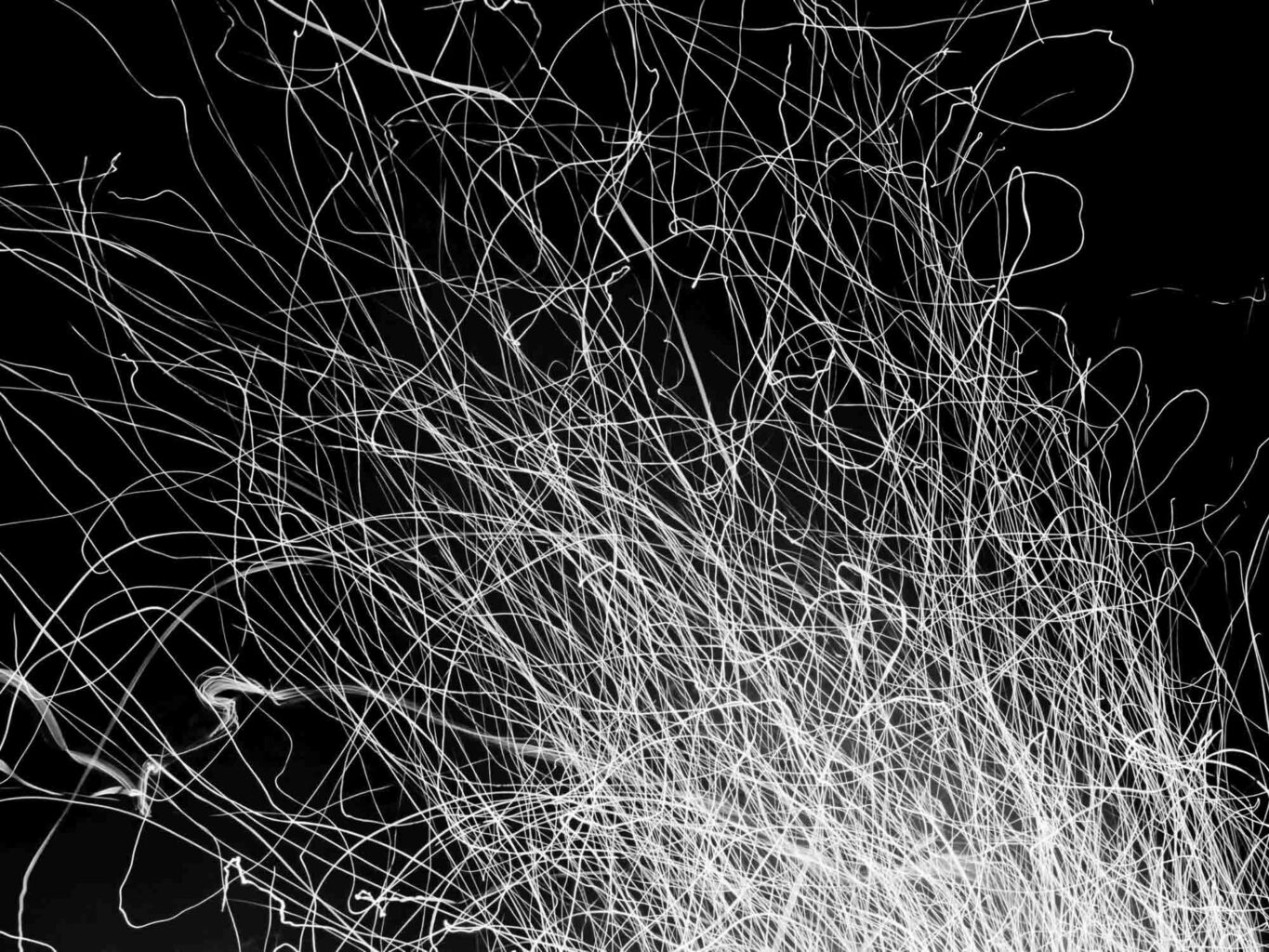Intellectual materialism denies intuition and its connection to spirit, but by asking questions of “why” rather than just “what” or “how”, we can start to spiritualize science. The final part of a four-part series. Here are the links to parts one, two, and three.
The Threshold that Keeps the Spirit Hidden from the Intellect
It betrays the entire mood of our present scientific paradigm to turn to intuition and bring the spirit directly into our questions about the natural world. The modern scientific paradigm resists making thinking an object of study like any other process in the outer world. From the contemporary perspective, thinking about thinking is not science but rather mere philosophy or, worse, religion. Science prides itself on being value-neutral: including the human being in the scientific knowledge of nature would be a regression back to medieval times. Our paradigm today turns exclusively to outer sense phenomena and deems as real only those things that can be measured and weighed. This is materialism. Of equal importance for modern science, the intellect rules in the domain of objective knowledge.
To make our way to intuition, it is necessary to understand the role the intellect plays in intellectual materialism. We know that through the power of our intellect, we construct theories from concepts, linking the concepts to sense phenomena (e.g. data or evidence) and building one concept onto another. We use the intellect as the bridge builder between our conceptual world and the world of the senses. We think the intellect spans the abyss between the two spheres of experience, but this intellect does not grasp itself. This is the paradox at the heart of modern science. What does it mean to say that the intellect does not grasp itself?
This abyss is, in essence, the threshold between the world of sense phenomena and the spiritual world. This threshold is invisible to modern science in part because science is gripped by intellectual materialism. The theories and concepts of intellectual materialism prevent the recognition that there is something underneath the intellect. What is this something? Intuition! Intuition is the faculty within us that spans the threshold and makes it possible to see behind the constructs of the intellect (e.g. things like atomic theory or genetics) and into the spirit. Intuition can grasp itself, and is, therefore, the real bridge builder.

From the vantage point of intuition, it is possible to learn why the intellect does not grasp itself. The activity of our intellect stands on a seeming nothingness—a kind of zero- or null-point—which gives us confidence and certainty in our knowledge because we can link concepts one to the other on a blank slate, so to speak. However, this activity eclipses our direct view of intuition. The seeming nothingness is, in reality, an active but unconscious process which suppresses awareness of the threshold separating the sense world from the spiritual world. Our intellectual striving for knowledge is like trying to reach the end of the rainbow by walking forward and in reality only pushing the rainbow further away. This illusory process can only be discovered by intuition, but when we are bound to intellectual materialism, we do not rightly acknowledge intuition, and, consequently, we cannot see the threshold, just as a fish does not know it is wet. We are in a prison of our own making.
To free ourselves from this prison demands that we place before us the ultimate “why” questions of our existence. Exploring the many obstacles that keep us imprisoned and prevent contact with the spiritual world takes us into the deepest riddles of our personality—life and death, love and hate, egotism in the broadest sense—all of which are beyond the scope of this essay. Needless to say, when contact with the spiritual world is made, the threshold becomes visible. We know the zero- or null-point of the intellect is illusory, because we consciously experience, through intuition, the “purely spiritual content” underlying the null-point of the intellect. Furthermore, we can see how merely intellectual thoughts are thin, shadowy copies of the sense world, making it hard to experience thinking itself (e.g. intuition) which can carry us to the spirit behind the world of sense. Aristotle is right to say that nature abhors a vacuum, but the modern era interprets this famous saying materialistically. Spirit is concrete and permeates the whole universe, from the seeming vacuum of cosmic space to the seeming vacuum upon which our intellect stands and functions. Intuition reveals this to us. This entire process of going beyond the intellect to reach intuition can be called the spiritualization of the intellect. It is a process of overcoming dualism.

Technology is Suited to Answer “How” and “What” Questions but not Questions Relating to the Riddles of Life
The technological marvels of civilization that have emerged in the modern era are the product of our intellect. Our intellect, with all its capacities, including logical cognition and memory, is convinced by a materialistic worldview that assumes the foundation of the world (atoms) and life (DNA) is settled business. In other words, intellectual materialism is the final answer. The “why” questions of life, which preoccupied Aristotle and the great medieval thinkers, have given way to the “what” and the “how”.
This thinking focuses on the questions “how does it work?” and “what is it made of?” However, when science tries to answer the question, “where did it come from?” or, the related question, “where is it going?”, it makes the mistake of thinking that the questions, “how does it work?” and “of what is it made?” are the right ones to ask. Technology merely borrows processes from nature and repurposes them through the faculty of the intellect to serve our purposes. Why these processes exist in the first place (i.e. electrons in a metal or DNA in a cell) are beyond the intellect of modern science, although we fool ourselves into thinking that we can grab hold of the why through the what and the how.
If we are trying to understand the origins of the universe or of life, we are forced into the question “why does it exist?” We must overcome the one-sided superficiality of the modern era, which only appeals to naturalistic, mechanical (e.g. how and what) causes. We must appeal to intuition, which has the capacity to grasp the spirit. Only when we directly engage the spirit can we reach beyond the merely physical to understand why things are the way they are. We must go deeper. Thus, we conclude that it is impossible to avoid “why” questions in nature. The why is intertwined with the how and the what.

Where do we go from here? We need to spiritualize our science through intuition. We need a spiritual science. A spiritual science offers a methodology that bridges the gap between the why, the what, and the how. It reintroduces Aristotle’s formal and final causes but on the level of the spiritual, which can be grasped through intuition. Intuition is not merely anthropomorphizing the natural order because the spiritual world is grasped on its terms. Nature is neither merely a mechanistic process nor a caricature of human purpose (e.g. anthropomorphism). When science is spiritualized through intuition, the moral and the natural world no longer stand apart from each other. A real pathway emerges to integrate science, philosophy, and religion in a new and contemporary way.
Such a spiritualized science is the antidote to the alienation and anxiety within us and the strife and conflict between us. Establishing the spiritual in our lives becomes a counterbalance to the one-sidedness of modern science and the intellectual culture that has sprung from it. The result of this is a paradigmatic shift in the whole of science, but this can only be realized if we make intuition a real force in the culture by breaking free from the intellectual materialism which imprisons us. Science as a whole does not know that it is imprisoned. This becomes abundantly clear once we make our way to intuition for ourselves.
Take depression, for example. Science through neuropharmacology focuses on brain chemistry (e.g. serotonin levels) to grasp the nature of depression, but, from the perspective of the spirit, the brain is the consequence of the spiritual. Thinking is not produced by the brain but merely expresses itself through the brain. If our culture embraces the spirit, then entirely new approaches to manage depression will emerge. Instead of focusing on the molecule of serotonin, which is an abstraction, the entire human being will be engaged more fully to deal with the very real problem of depression.
Intuition sees that a depressed person is embedded in the universe as a whole and can discover links to heal such a person across all aspects of their life—their relationships to their friends and family, their local community, and the culture writ large are real factors in their depression. Moreover, their relationship to themselves (e.g self-image) living in their thinking is a real factor as well. The spiritual shines through these real relationships in their entirety, and the key is to learn how to bring the spiritual to bear in these relationships. Intuition can show us how to do this. This does not mean serotonin uptake inhibitors must be immediately abandoned, but it does mean methods that work in a deeper and more integrative way on a depressed person could become commonplace as we spiritualize our intellect and overcome materialism. Of course, there are already many who take this approach to depression, and their work will be furthered as intuition is brought to bear more directly in modern science.
Friedrich Nietzsche writes, “He who has a why to live for can bear almost any how.” 1 This is so true. Establishing a science of the spirit through the spiritualization of the intellect (e.g. intuition) brings “why” explanations to our civilization, which is currently plagued by profound existential problems. These deeper “why” explanations can answer the riddles of life and, as a result, can heal us in ways our modern science, bound by one-sided intellectual materialism, simply cannot.
Title image Photo: Brandon Morgan / Unsplash













